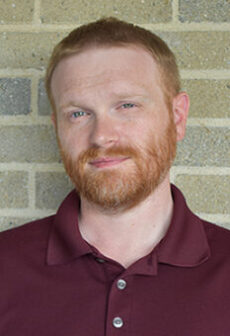We only benefit when we consider Jesus’ risen glory and our own deficiencies

Shawn Reeves
By Shawn Reeves
Twelfth Sunday in Ordinary Time/June 20
Job 38:1,8-11; Psalm 107:23-24,25-26,28-29,30-31; 2 Corinthians 5:14-17; Mark 4:35-41
My wife and I have five children, which means neither of us gets enough rest. Our home is filled with the effervescence of laughter and life but also long nights, early mornings, endless tasks, and less than adequate sleep. The cyclical tension of restfulness and fatigue is a curious phenomenon. Many a mystic has found a kind of spirituality about it, a biological metaphor for the soul in prayer — a principle masterfully illustrated in our infant daughter. How fresh and exciting the world is to her when she is rested and how woefully tedious it becomes when she is not.
In the past year and a half, the pandemic has left the entire world with little rest, unleashing an explosion of fear and consternation. Indeed, the words of the Apostles in today’s Gospel could very well have been the property of our own hearts: “Teacher, do you not care that we are perishing?” To the Apostles, the Lord responds, “Why are you terrified? Do you not yet have faith?” using a term that in Greek not only means intellectual belief but harbors the connotation of “trust.” But crisis tends to be a time in which trust is difficult.
When they wake Jesus, he does not appear to be surprised or disturbed by the storm. St. Athanasius suggests the entire event was a calculated test by Jesus, in which he permitted (not caused) the squall, in order to illustrate the spiritual state of the Apostles and allow them to discover their weaknesses, those places where their trust in Jesus must grow.
We cannot grow unless we are first aware of our deficiencies. Pain and fear are by no means moral goods, but they can lead us to greater introspection, just as the Apostles are jarred into the question “Who then is this whom even wind and sea obey?” — a question that seeks to define Jesus and, necessarily, also their own identity as his disciples.
“I WILL GIVE YOU REST”
St. Gregory of Nazianzus proposes a more transcendent agenda in Jesus’ actions.
It is no accident that Jesus announces to the wind and waves, “Quiet! Be still!” They are deliberate words that harken to the divine figure in today’s Psalm, who “stills” the sea and “hushed” the storm. Certainly, this Gospel event seems to be a living animation of the very narrative of Psalm 107, as the Apostles “cried out to the Lord in their distress” and “were calmed” after the tumult was silenced by Jesus. Wielding this Psalm declaration and the divine authority of our first reading, Jesus makes definitive His divine identity, compelling them to no longer examine him merely “according to the flesh.” But, as St. Gregory of Nazianzus insinuates, it is not merely in the content of His words that He does this but in the conferring of His rest.
The fact that God “rested” on the seventh day of creation insinuates that all of creation originally participated in His divine rest. And every human has been longing to regain it since the fall of Adam and Eve. The Hebrew word translated as “rest” in the creation story literally means “abstaining from activity,” but it also has developed a connotation of “peace.”
Jesus rested in the boat in complete peace, unperturbed by the storm. When the Apostles awaken Him, He immediately addresses the storm, transmitting His rest to both nature and His disciples. The “rest” of peace that belongs to God alone and which the world enjoyed on the seventh day is communicated again to creation, and in that moment humanity and nature “were calmed,” at peace once more.
Jesus says elsewhere, “I will give you rest” (Matthew 11:28). But what do we do when injustice, the threat of suffering, and disease still ravage our world? It begins, I suppose, when we ask less “Teacher, do you not care that we are perishing?” and ask more “Who then is this whom even wind and sea obey?” evaluating life through His risen glory and not merely “according to the flesh.” It is a difficult labor — a labor of trust.
—
Shawn Reeves has served as the director of religious education at St. John’s Catholic Newman Center in Champaign since 2001. He and his family attend St. Elizabeth of Hungary Church in Thomasboro.





